Newsletter - Summer 2023
News for supporters and friends of the Alzheimer Society of Canada
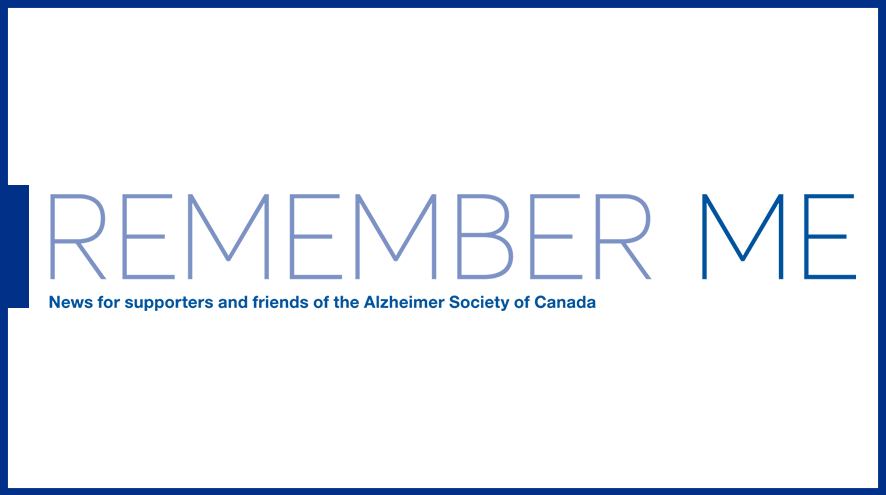
Donor Support is Vital
I’m a research scientist for the Alzheimer Society of Canada with a background in gerontology, epidemiology, data analytics and public health. My work includes an initiative I’m proud to have authored, “The Landmark Study: Navigating the Path Forward for Dementia in Canada.”
Our study stresses the need for immediate action to help alleviate the personal and social impact of Alzheimer’s disease and other dementias, and calls for increased investment in research and support services. The support from our donors is instrumental to achieving these goals and can make a significant impact on the future of dementia in Canada. I hope that you enjoy reading about the impact of our supporters, the latest news about dementia and the work of the Alzheimer Society.
Thank you for your interest.
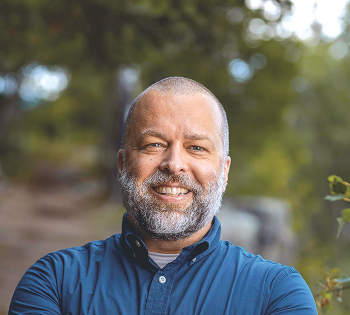
Dr. Joshua Armstrong
Research Scientist
Sharing Caregiving Experience
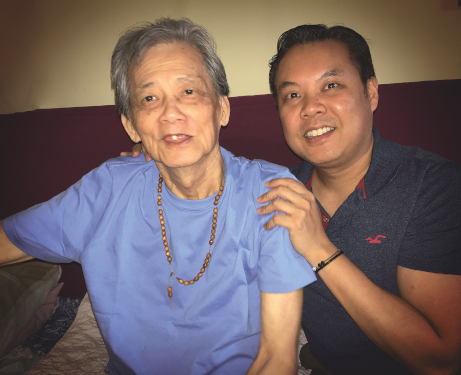
For over 10 years, my mother and I were caregivers to my father, Reynaldo Beleno, who lived with Alzheimer’s disease. We faced some difficult challenges, but with the help of technology and the community, we were able to support my father until he passed away peacefully at home.
My caregiving experience led me to become active in the dementia community, collaborating with Alzheimer Societies, researchers, and innovators who were creating solutions for people living with dementia and their caregivers. Today I am proud to be part of the Advisory Group of People with Lived Experience of Dementia, which has allowed me to share the lessons I learned caring for my father. The group gives members a platform for contributing knowledge, recommending changes, and giving back to the dementia community in a practical, meaningful way.
Learn more at alzheimer.ca/AdvisoryGroup
Taking the Plunge to Raise Funds
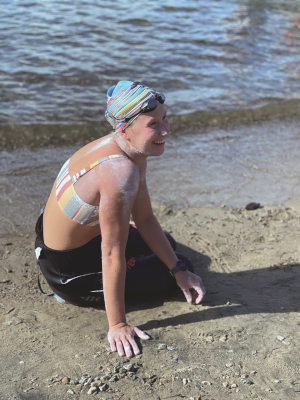
In August of 2022, Issie Grecoff, a 16-year-old swimmer from Penticton, completed a 32-km 12-hour swim in Okanagan Lake to raise money for Alzheimer's research. Issie swam in memory of her grandmother, who passed away from Alzheimer’s disease in March of the same year.
Issie has been long-distance swimming since she was just ten years old. With both sides of her family affected by Alzheimer’s disease, she was inspired to combine her love for the open water with a desire to raise funds for dementia research.
At the end of her extraordinary swim, Issie was greeted by the cheers of friends and family. She had raised more than $11,000 through skill and determination. And she’s not stopping!
Find ways you can help at alzheimer.ca/Fundraiser
The Many Faces of Dementia
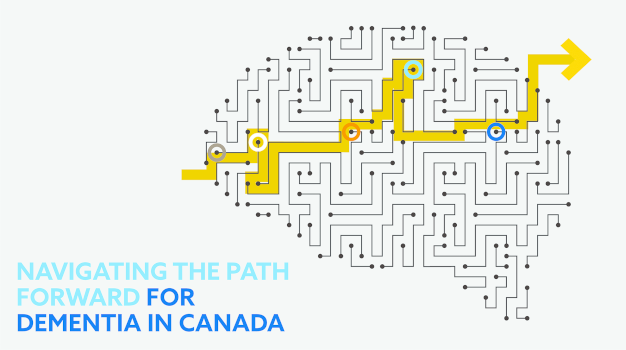
Canada is facing a dementia care crisis. By 2050, we can expect more than 1.7 million people to be living with dementia. Unless we discover and implement effective risk reduction approaches and treatment options, the lives of millions of Canadians will be deeply impacted by the challenges of this degenerative condition.
In the second report from the Landmark Study titled “The Many Faces of Dementia in Canada”, to be released later this year, we’ll take a closer look at individuals living with dementia and explore the vast differences amongst them. Chapters cover the experiences of Indigenous Peoples with dementia in Canada, differences felt across ethnicities, discrepancies in dementia journeys between the sexes, and the distinct challenges faced by people with young-onset dementia (YOD) and their care partners.
With our rapidly increasing dementia population, it is more important than ever to better understand the diversity of experiences across individuals diagnosed with this challenging condition.
Learn more at alzheimer.ca/LandmarkStudy
Dementia-Friendly Communities

Promoting dementia awareness, education and communication can help build dementia-friendly communities. And it starts with you! Here are some tips on becoming dementia-friendly:
- Educate yourself and others about the needs of people living with dementia and their care partners.
- Make a conscious effort to reduce stigma by addressing myths, misconceptions and assumptions about dementia.
- Ensure the rights of people living with dementia and their care partners are respected.
- Support people affected by dementia to live as independently as possible and stay engaged in all aspects of community life.
- Listen to and share stories of people living with dementia and their care partners.
- Advocate for change in your community.
- Help initiate, promote and sustain community efforts to become dementia friendly.
Learn more at alzheimer.ca/dementia-friendly
Sign up Today for the Walk!
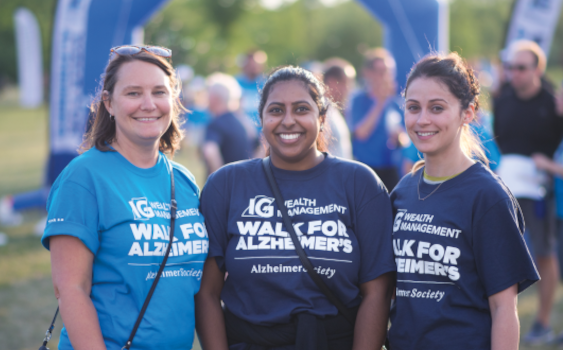
Since 2015, the IG Wealth Management Walk for Alzheimer’s has raised over $41 million for people living with dementia and their care partners.
Walk events will be taking place across the country the weekend of May 27/28, 2023. There’s still time to sign up!
- Register today at walkforalzheimers.ca
- Show your support and donate to your own fundraising effort!
- Encourage your friends and family to donate
- Share who and what inspires you on social channels: #IGWalkforAlz
- Walk with us and recruit others to join in!
Learn more at walkforalzheimers.ca
Monthly Donor Corner: Why I Give
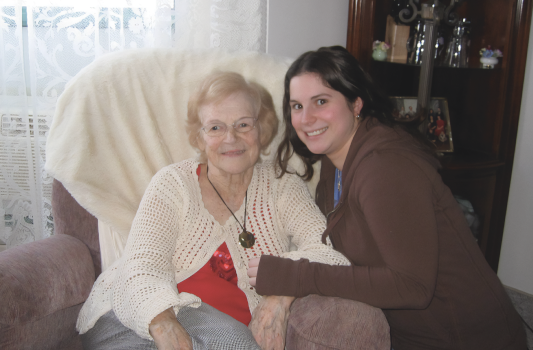
Sara-Michèle and her grandmother, Ida
I became a monthly donor to honour my grandmother, who had Alzheimer’s disease, and because I believe in the services the Alzheimer Society provides. As a teenager, I had no idea how to be with my grandma after her diagnosis. I wish I’d known about the Alzheimer Society back then — it would have helped me learn more about what to do if a family member or friend has dementia. I give monthly to help ensure that other families have access to helpful information, guidance and support. – Sara-Michèle Bard
If you’re not already a monthly donor, please join now at alzheimer.ca/SummerNews2023
Brain Healthy Tips to Reduce Your Risk of Dementia

Here’s some good news! There are proven ways to reduce our risk of dementia. Try these four brain-healthy tips:
Stay connected: Avoid isolation. Spend time with others, stay connected to your community, and keep in touch via phone or video calls.
Get moving: Heart disease, stroke, and diabetes all heighten dementia risk. Regular exercise lowers the likelihood of developing these conditions.
Manage stress levels: Chronic stress can cause cognitive decline. Start managing stress by prioritizing social connections and physical activity.
Give your brain a workout: Learn a new language or alter your routine, like brushing your teeth with your non-dominant hand. Challenge yourself by trying new hobbies!
See more ways to reduce your risk at alzheimer.ca/12actions
Have You Thought About Including a Gift in Your Will?

A gift in your Will has many practical benefits that allow you to meet your own, unique financial needs as well as your philanthropic objectives:
It’s simple: Leaving a gift in your Will is easy to arrange.
It’s flexible: A gift in your Will can be made no matter how old you are or how much you have to give.
It has tax advantages: A gift in your Will is a highly effective way to reduce taxes on your estate after death.
It has a lasting impact: Leaving a gift in your Will gives you the satisfaction that the areas you felt strongly about in your lifetime will continue to receive support, even after you’re gone.
It’s personalized: You can make a general gift, or choose to designate it to a specific program such as research, education, awareness or caregiver support.
Visit our website to learn more: alzheimer.ca/GiftInYourWill
